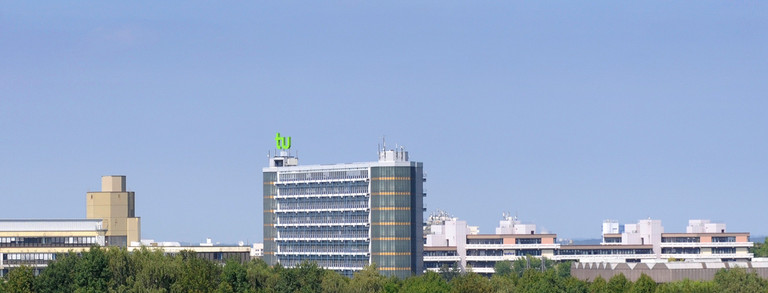Professor Max Hansmann Honored for Pioneering Work
- Top News
- Research
- People

A chemical reaction usually generates reactive intermediates. These are short-lived molecules that are highly reactive and react quickly again, which makes them difficult to detect. Professor Max Hansmann and his team have succeeded in modifying these elusive molecules in such a way that they are stabilized and can even be used as reagents in syntheses. “Such reactions, which normally require multistage synthesis, are interesting, for example, for assembling complex compounds such as natural substances more quickly. Especially since the newest reagent is relatively easy to produce,” says Professor Max Hansmann. The research work is part of his CC-CHARGED project, for which he successfully secured an ERC Starting Grant in 2022
Alternatives to lithium and cobalt
Hansmann and his team are additionally working on the synthesis of new organic redox systems that could find application in photocatalysis and energy storage. Such systems could be used in redox flow batteries, among other things. The team is currently investigating how many electrons can be stored and released in these molecules. “Once such a battery is spent, the organic molecules can simply be burned. If the raw materials are also made up of renewable organic compounds, it would be possible to close the cycle,” he says. “And, in the future, we could dispense with lithium and cobalt and their problematic mining in politically unstable countries.”
For this pioneering research work, the jury awarded him the Klung Wilhelmy Science Prize 2024. The award ceremony took place on 21 November at Freie Universität Berlin. The laudatio was held by Professor Peter Schreiner, former president of the German Chemical Society (GDCh). The award is conferred in alternating years to outstanding young German scientists in chemistry and physics. Two permanent committees at Freie Universität Berlin select the award winner.

About Max Hansmann
Professor Max Hansmann, born in 1987, has been Professor for Organic Chemistry at the Department of Chemistry and Chemical Biology of TU Dortmund University since 2023, after accepting a tenure-track professorship there in 2019 and leading an Emmy Noether Junior Research Group from 2020 onwards. As a scholarship holder of the Studienstiftung des deutschen Volkes (German Academic Scholarship Foundation) and the Fonds der chemischen Industrie (Chemical Industry Fund), Max Hansmann earned his doctoral degree in the field of homogeneous gold catalysis at the University of Heidelberg. He was then a postdoctoral researcher and Feodor Lynen Research Fellow of the Alexander von Humboldt Foundation at the University of California in San Diego, USA. He has received several awards for his work, including the Ernst Haage Prize of the Max Planck Institute for Chemical Energy Conversion, the prize of the Association of German University Professors of Chemistry, the Lecturer Award of the Chemical Industry Fund and the ORCHEM Prize of the Liebig Association for Organic Chemistry of the German Chemical Society. In 2022, he received an ERC Starting Grant for his CC-CHARGED project, in which he is studying fundamentally new substance classes in organic chemistry.
More information on the Klung Wilhelmy Science Award
Contact for queries:





![[Translate to English:] Partner Four hands are holding the green logo of TU Dortmund University](/storages/tu_website/_processed_/1/d/csm_Partner_Nicole_Rechmann_KW_670eba0154.jpg)




![[Translate to English:] Forschung An apparatus with tubes in a laboratory](/storages/tu_website/_processed_/0/c/csm_Forschung_Juergen_Huhn_4fa3153b51.jpg)
![[Translate to English:] Studium Five students are sitting in a lecture hall. They are talking to each other.](/storages/tu_website/_processed_/c/9/csm_Studium_FelixSchmale_dbdbfb0dd7.jpg)





